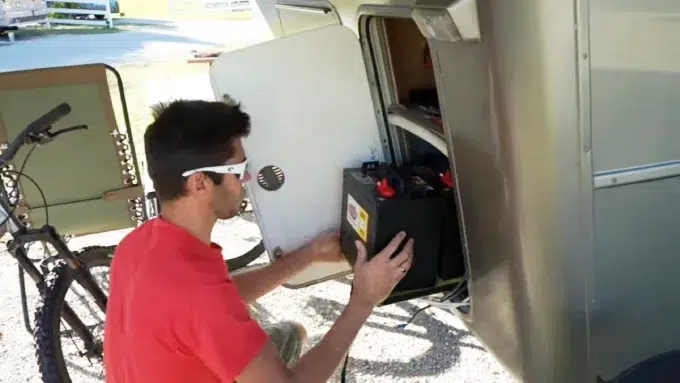Last Updated on May 1, 2023
If you’re an RV owner, you know the importance of keeping your vehicle’s battery in tip-top shape. But it may be time to investigate if you’ve noticed a pungent odor emitting from your battery. The smell of rotten eggs is a telltale sign that something isn’t quite right with your RV’s power source.
But do you know why your RV battery smells like rotten eggs and what you can do about it?
The buildup of sulfates is one of the leading causes of RV batteries smelling like rotten eggs. Then there is the issue of overcharging, which can boil acid, damage the battery and create an odor. Also, a worn-out battery or one left uncharged for extended periods may exhibit a pungent smell.
Don’t let this issue go unaddressed. Read on to find out why your RV battery might emit this unpleasant scent and what steps you can take to fix the problem.
Why Does My RV Battery Smell Like Rotten Eggs: Reasons Why
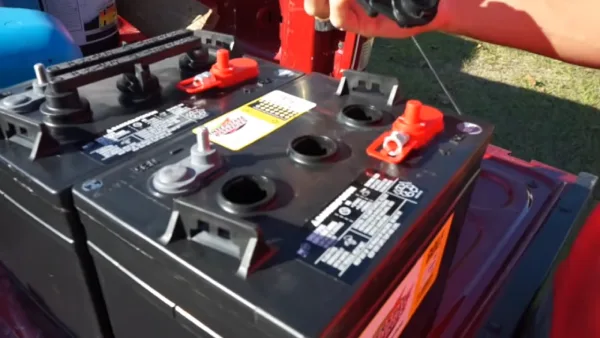
The rotten egg smell from your RV battery can be unpleasant and concerning. Here are some of the common causes of this issue:
No 01: Sulfur in the Battery
One of the main causes of a rotten egg smell in your RV battery is the presence of sulfur. Sulfur is a natural byproduct of the chemical reactions that occur within the battery, and it can be released into the air through the vents.
When sulfur mixes with other elements in the air, it can create a strong odor similar to that of rotten eggs. This smell can be quite unpleasant and may even cause health problems if you are exposed to it for long periods.
To prevent this smell from occurring, it’s important to ensure that your RV battery is properly ventilated. This means ensuring enough space around the battery for air to circulate and installing proper ventilation systems if necessary.
In addition, regular maintenance of your RV battery can help prevent sulfur buildup. This includes checking for any signs of corrosion or damage and cleaning any dirt or debris that may have accumulated on top of the battery.
No 02: Overcharging of the Battery
Overcharging of the battery is one of the common causes of a rotten egg smell in RV batteries. When you overcharge your battery, it produces hydrogen gas that can cause an unpleasant odor similar to that of rotten eggs. This smell can be harmful to your health and the environment.
Overcharging occurs when you leave your battery connected to a charger for an extended period or use a charger with a higher voltage than recommended. The excess energy causes the electrolyte solution in the battery to heat up, producing hydrogen gas.
Using a charger with the correct voltage and amperage rating for your battery is essential to prevent overcharging. Also, disconnect your battery from the charger once it’s fully charged. Leaving it connected for an extended period can damage your battery and cause it to emit a rotten egg smell.
Regular maintenance is also crucial in preventing overcharging. Check your battery regularly for signs of corrosion, cracks, or leaks. If you notice any damage, replace your battery immediately to prevent further damage.
No 03: Dead Cells in the Battery
Dead cells in an RV battery can also cause a rotten egg smell. When a battery is not regularly maintained or charged, it can result in dead cells. Dead cells occur when one or more of the cells in the battery fail, which leads to reduced capacity and performance.
Dead cells in an RV battery can cause an imbalance in the charging process, leading to overcharging of other cells. Overcharging of other cells can produce excess heat and release hydrogen sulfide gas, resulting in the unpleasant rotten egg smell.
Regular maintenance is essential to prevent dead cells from forming and causing a rotten egg smell. This includes checking the water levels in the battery and ensuring that it is charged properly. If you suspect your RV battery has dead cells, replacing it as soon as possible to avoid further damage is best.
How to Test for Sulfur Smell In RV Battery?
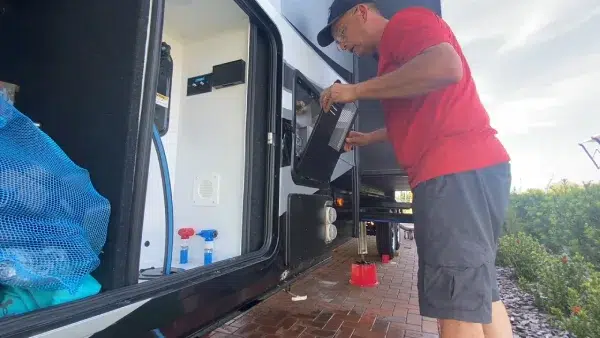
If you notice a smell similar to rotten eggs coming from your RV battery, it could be a sign of sulfur buildup. To test for this smell, you will need a few tools and follow some simple steps.
Tools Required
You will need some basic tools to test for sulfur smell in your RV battery. These tools include a voltmeter, safety goggles, gloves, and a well-ventilated area.
A voltmeter is essential in testing the voltage of your battery. You can purchase one at any auto parts store or online. Safety goggles and gloves are necessary to protect your eyes and skin from any acid that may be present on the battery.
It is also essential to perform the test in a well-ventilated area to avoid inhaling any harmful gases that may be emitted during the process.
Once you have gathered all the necessary tools, you can proceed with testing for sulfur smell in your RV battery. Following the manufacturer’s instructions carefully when using the voltmeter is recommended.
Steps to Follow
Follow these steps to test for the smell:
- Turn off all appliances and disconnect any external power source.
- Put on your safety gloves and goggles.
- Open the battery compartment of your RV and locate the battery.
- Use the hydrometer to check the specific gravity of each cell in the battery. This will help you determine if there is an issue with any cells in particular.
- Use the voltmeter to measure the voltage of each cell in the battery.
- Check for any signs of corrosion or damage to the battery terminals.
If you detect a sulfur smell during this process, your battery likely has an issue with sulfur buildup. You should take steps to address this issue as soon as possible.
It’s important to note that testing for sulfur smell in your RV battery is not just about addressing odor issues. Ensuring your battery is functioning properly and safely can also be critical.
What Effect Does It Have on The Smell of Rotten Eggs Coming from RV Batteries?
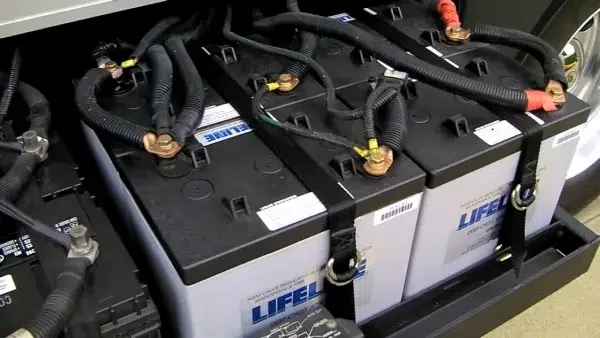
The smell of rotten eggs from your RV battery isn’t just unpleasant and can seriously affect your health and the environment. This smell is caused by sulfur in the battery, which can be harmful if inhaled over a prolonged period.
Breathing in sulfur can irritate your eyes, nose, and throat, leading to coughing and difficulty breathing. It can also cause headaches and nausea. In extreme cases, exposure to high levels of sulfur can lead to respiratory problems or even death.
In addition to health implications, the rotten egg smell from RV batteries can also have environmental implications. Sulfur dioxide emissions are one of the major contributors to acid rain, which can damage forests and waterways. Acid rain can also harm wildlife and aquatic life.
How to Prevent Rotten Egg Smell in RV Batteries?
Proper maintenance of your RV battery is essential to ensure that it operates efficiently and safely. One common issue that RV owners face is a rotten egg smell emanating from their batteries. This can be a sign of serious problems with the battery, and it should not be ignored.
To prevent this unpleasant odor from developing in your RV battery, there are several steps you can take. The first step is to ensure proper ventilation.
Batteries produce hydrogen gas during charging, which can build up inside the battery compartment if not properly ventilated. This gas has a distinct rotten egg smell, which can be dangerous if inhaled in high concentrations.
Ensure your RV’s battery compartment is well-ventilated to prevent this hydrogen gas buildup. You may want to install vents or fans to help circulate air through the compartment and remove any gases that may accumulate.
Another important factor in preventing the rotten egg smell is to use proper charging techniques. Overcharging the battery can cause it to produce excess hydrogen gas, leading to an unpleasant odor.
Ensure you are using a charger designed for your specific type of battery and follow the manufacturer’s instructions carefully.
Regular maintenance is also crucial in preventing the development of sulfur smells from your RV batteries. Check your batteries regularly for signs of corrosion or damage, and replace them as needed. Clean any corrosion off your battery terminals with a wire brush and baking soda solution.
Can bad RV batteries smell like sewer?
Leaking battery acid is a clear indication that a car battery is dying. As the battery wears out, it will produce hydrogen sulfide gas, which gives off a strong odor. The scent is often described as a mixture of rotten eggs, sewer or well water.
This smell can be overpowering, and it is not something you want lingering in your vehicle. It is crucial to replace your battery as soon as possible to avoid any further damage to your car. Additionally, a failing battery can affect the overall performance of your vehicle.
Do AGM batteries smell like Sulfur?
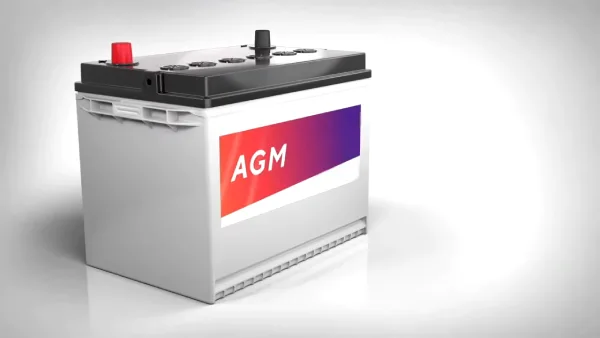
RV AGM (absorbent glass mat) batteries are a more advanced technology compared to lead-acid batteries. They are maintenance-free, safer and more efficient. However, they may also produce a smell similar to rotten eggs when charging.
The odor is less intense than with lead acid batteries, but it is still present. This smell is a result of the battery releasing hydrogen gas during the charging process. It is essential to note that the scent is not harmful, and it is not an indicator that the battery is dying.
Don’t Ignore the Rotten Egg Smell from Your RV Battery
The smell of rotten eggs coming from your RV battery is not only unpleasant but can also be dangerous. The primary causes of this odor are sulfur in the battery, overcharging, and dead cells.
If you suspect a sulfur smell in your battery, it’s essential to test for it immediately using the right tools and following the correct procedures.
Aside from that, the rotten egg smell can have adverse health and environmental implications if ignored. It’s vital to take preventive measures such as proper ventilation, charging techniques, and regular maintenance to avoid this problem.
Therefore, as an RV owner, it’s necessary to always be vigilant about your battery’s condition to ensure safety on the road. Remember that prevention is better than cure for dealing with a rotten egg smell from your RV battery.

